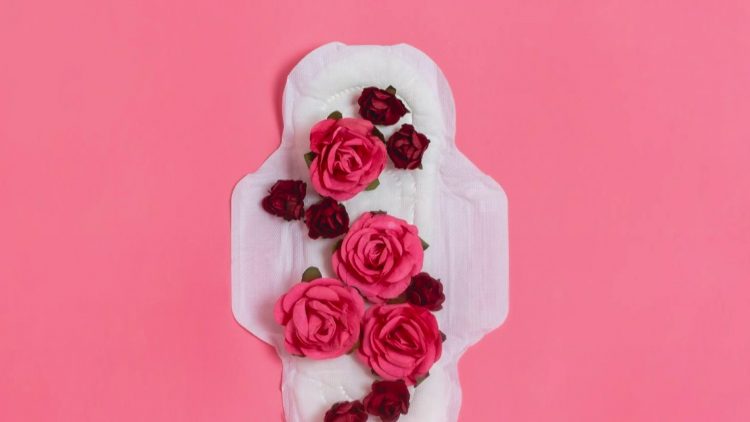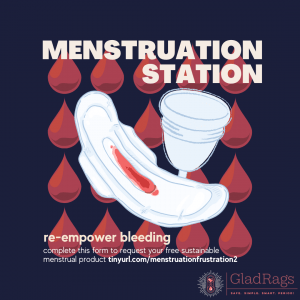June 27, 2023
Breaking the cycle of period poverty to achieve menstrual equity
 More than half of the world’s population are menstruating people, and around 300 million people are menstruating on any given day. But for millions of menstruators, it is a monthly struggle to afford products such as pads, tampons and cups to manage menstrual bleeding—not to mention having access to toilets, hand washing facilities, sanitation and hygiene education.
More than half of the world’s population are menstruating people, and around 300 million people are menstruating on any given day. But for millions of menstruators, it is a monthly struggle to afford products such as pads, tampons and cups to manage menstrual bleeding—not to mention having access to toilets, hand washing facilities, sanitation and hygiene education.
This limited or lack of access to sanitary products and sanitary spaces is called period poverty, a relatively new term for an old issue that has exacerbated the social and educational gender gap for decades, perhaps centuries, particularly in low- and middle-income communities around the world.
Period stigma, the discrimination faced by people who menstruate, is largely the effect of long-held cultural taboos and gender stereotypes that perpetuate ideas about menstruation as unclean, bad luck or harmful. In some countries, the stigma is so strong that menstruating people must remain in “period huts” for the duration of their cycles or are not allowed to cook or be in the same house as men.
Not all menstruators are women, and not all women menstruate
Even the euphemisms with which we talk about menstruation—Aunt Flo, on the rag, monthly visitor, the curse—perpetuate the sense of embarrassment and shame that many menstruators have around their periods.
Global efforts to eliminate period poverty and menstrual stigma through service, advocacy and education have gained traction in recent years, with organizations such as PERIOD working toward menstrual equity by catalyzing a youth movement.
Period poverty is a global problem
Globally, 1.7 billion people live without basic sanitation services. In developing countries, nearly three-quarters of people lack basic handwashing facilities at home. This limited access to menstrual hygiene supplies, coupled with fear of stigmatization, negatively impacts girls’ school attendance and performance, in addition to other normal childhood experiences.
According to a 2014 UNESCO report, 1 out of every 10 menstruating youth misses school during their cycle due to lack of access to menstrual products, preventing them from reaching their full potential.
Young menstruators who do not receive an education are more likely to enter child marriages and experience an early pregnancy, malnourishment, domestic violence, and pregnancy complications as a result.
Poor menstrual hygiene can also cause significant physical health risks and has been linked to reproductive and urinary tract infections, according to UNICEF. In lieu of sanitary products, many menstruators are forced to use items like rags, paper towels, toilet paper, or cardboard. Others ration menstrual products by using them for extended amounts of time.
Living in conflict-affected areas, or in the aftermath of natural disasters, also makes it more difficult for people to manage their periods. Likewise, menstruators with disabilities and special needs face difficulties in managing their periods with dignity.
Period poverty in the United States
Period poverty is an issue in the U.S. as well, particularly affecting homeless menstruators, students and low-income people, many of whom lack access to or funds for menstrual hygiene products. In Washington state, 1 in 8 menstruators between the ages of 12 and 44 lives below the Federal Poverty Line.
Watch this video from Bustle explaining what it’s like to be unhoused and unable to afford menstruation products.
The so-called “pink tax” or “tampon tax”—the taxing of essential hygiene products, including pads and tampons, effective in 21 states as of June 2023—contributes to period poverty as well. These products are inexplicably considered “luxury” items ineligible for purchase on government benefits, such as Medicaid, the Supplemental Nutrition Assistance Program (SNAP) and the Special Supplemental Nutrition Program for Women, Infants, and Children (WIC).
Washington does NOT tax period products, but our neighbor Idaho does (Oregon does not have a state sales tax). Just this month, Texas passed a bill to eliminate the tax on period products, which will go into effect in September 2023.
Schools and federal prisons have recently begun improving access to period products within their facilities, but that is just a start. Only 16 states and Washington D.C. have legislated access to period products in schools—including Washington state—and federal prisons only began offering free period products to inmates in 2019.
In a national survey of 1,000 menstruating teens, 1 in 5 struggled to afford period products and 4 in 5 either missed or knew someone who missed class time because they did not have access to period products. In the U.S.:
- 16.9 million people who menstruate in the U.S. are living in poverty, and of those, two-thirds struggled to afford menstrual products in the last year.
- 14.2 % of college menstruating people in the U.S. had experienced period poverty in the past year.
People who menstruate deserve accessible and affordable menstrual hygiene products, untaxed and widely available in public places.
Program spotlight: UW Q Center Menstruation Station
 The Q Center’s Menstruation Station program aims to undo and mitigate the structures of oppression that impact menstruating bodies with a focus on the needs of queer and trans folks who are often left out of menstruation discourse and care.
The Q Center’s Menstruation Station program aims to undo and mitigate the structures of oppression that impact menstruating bodies with a focus on the needs of queer and trans folks who are often left out of menstruation discourse and care.
Their goal is to re-empower bleeding and alleviate the financial and emotional burdens experienced by people who menstruate by providing free menstrual products (both disposable and reusable) to those who need them.
Anyone is welcome to stop by HUB 315 to pick up free hygiene products, or check out this list of free product availability across campus.
Achieving menstrual equity
Menstrual equity combats both period poverty and stigma and should be considered a human right.
Some countries, states and cities around the world have passed laws mandating schools provide period products to students, deeming them as essential as toilet paper—but more work needs to be done.
Early education for all children around the biological and social experiences of menstruation is essential to combatting stigmatization and cultural taboos. Current policy must be enforced to make menstrual products, sanitation and hygiene easily accessible, while new policy needs to be introduced to eliminate the discriminatory tampon tax and advocate for free period products in public spaces.
Track menstrual equity policies around the United States with the Alliance for Period Supplies
Empowering menstruators of all ages and backgrounds through education about menstrual hygiene is essential to breaking the silence about menstruation, spreading awareness about menstrual hygiene, and providing products to as many individuals as possible.
How you can help
Donate, advocate, educate: there are so many ways to get involved! Check out these organizations for some ideas to get started:
Donation of period products to the UW Q Center are welcome. Contact qcenter@uw.edu to arrange drop-off.
Seattle T2P2 is a menstrual product donation collective committed to disrupting period poverty throughout Seattle and beyond. T2P2 stands for “Towers of Tampons & Pyramids of Pads.”
- Donate to a period product pantry
- Get products for your organization here
- Attend or volunteer at an event
Already a regular donor to your local food pantry? Consider adding in period products to your donation. Most pantries and homeless shelters are in constant need of these products.
PERIOD. advocacy offers opportunities to get involved in policy advocacy around getting free and accessible period products into public spaces such as schools, libraries, shelters, public buildings and prisons. Check out the PERIOD. X Ignite Organizing Academy for a free, virtual advocacy bootcamp.
Support PERIOD’s work with a one-time gift or monthly payroll deduction through the UWCFD (charity code 1482851).
Lastly, purchase period products that are organic and/or reusable if you are able: better for the earth, better for your body and better for your pocketbook over the long run.
Contributed by Nicole Reeve-Parker